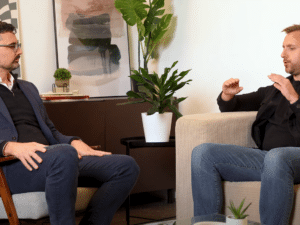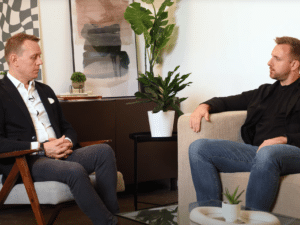View from the top – Ovell Barbee, SPHR
In our most recent edition of „View from the top“, we interview experienced HR consultant, speaker, author and thought leader – Ovell Barbee, SPHR.

What is the most valuable leadership lesson you learned?
The most valuable leadership lesson I learned is being comfortable with “the worst possible outcome”. When you experience this, it allows you to operate with less worry and restrictions. A boss stated to me “for you to be the most effective leader you can be, you have to be ok with the worst possible outcome!” She posed the question to me by asking “what’s the worst thing which could happen to you at work?” My answer was “I could be fired.” And she asked me to tell her what I would do in the event that I was fired. My answer was simple “I would dust myself off, update my resume, my spirituality would help me and I would find another job.”
What is most important to you in building your leadership brand?
Being the author of the answer to what I describe as one of life’s most compelling questions: “How will you be remembered?” It is important that the decisions you make and the behaviors you model as a leader are in line with what you would want others to say about you. While you have an opportunity, you should embrace “scripting” the answer to the question.
What is the most significant challenge you faced in the DEI space?
By far, the most significant challenge I have faced in the DEI space is silence. Without dialogue there are no opportunities to dialogue and to learn. Repeatedly, I found that, when necessary, conversations needed to be held about racism, discrimination, or diversity, oftentimes, the room (mostly filled with upper-management leaders) would go completely silent. „Crickets.“ One of the reasons why management avoids the necessary conversations that push for change is the fear of making people feel uncomfortable. In order to have change, we have to learn to be comfortable being uncomfortable.
Why is important to have “systems” thinking at the forefront when making recommendations to dismantle disparate outcomes in the DEI space?
I am a proponent of making recommendations that are systemic to address root causes leading to disparities in outcomes we see highlighted through data. My focus in the work is on policies, procedures and practices. I refer to those as the ‚Three Ps‘. Policies need to be reviewed to ensure they are not leading to inequities. Many policies have continued to exist without regular review and are not aligned to be reflective of current workplace practices. Procedures are just as important as written policies. If an organization has a procedure in place that does not allow for diverse perspectives to be considered, it could lead to an offensive ad, for example, which could be irreparably damaging to a company’s reputation. I always highlight the point that if your policies and procedures that you have formalized are not being enforced or practiced, it could lead to continued unfavorable outcomes.



